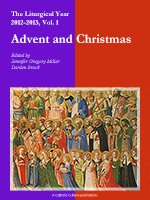Pope's head-on response to critics of Church teachings
CWN - December 07, 2012
Pope Benedict XVI provided direct answers to critics of Catholic teaching, both inside and outside the Church, in a December 7 address to members of the International Theological Commission.After praising the group for its efforts to "present, so to speak, the genetic code of Catholic theology," the Pope tackled two popular errors: the belief that the "sense of the faithful" can be used in defense of theological dissent; and the belief that organized religion is a source of international conflicts.
Regarding the sensus fidelium, which is frequently invoked to justify calls for change in controversial Church teachings, the Pope reminded his audience that the term refers to "a kind of supernatural instinct" among the faithful. He underlined the importance of this sense, quoting the Vatican II document Lumen Gentium: "The entire body of the faithful, anointed as they are by the Holy One, cannot err in matters of belief."
However, the Pope said, the sensus fidelium presumes a deep attachment to the faith, and cannot be reduced to a matter of prevailing public opinion. He continued:
Pope Benedict then addressed the charge that "religions, especially the monotheistic religions, would inherently be bearers of violence, mainly because of the claim that they advance the existence of a universal truth." By that logic, he observed, peace can be assured only by shutting off discussion of absolute truth. But in fact, he argued, such a move itself leads to open conflict and violence:And it is unthinkable to mention it in order to challenge the teachings of the magisterium, this because the sensus fidei can not grow authentically in the believer except to the extent in which he or she fully participates in the life of the Church, and this requires a responsible adherence to her magisterium.
When you deny the opportunity for people to refer to an objective truth, dialogue is rendered impossible and violence, whether declared or hidden, becomes the rule of law of human relationships. Without openness to the transcendent, which allows us to find answers to questions on the meaning of life and how to live a moral life, mankind becomes unable to act in accordance with justice and work for peace.
Some links will take you to other sites, in a new window.
